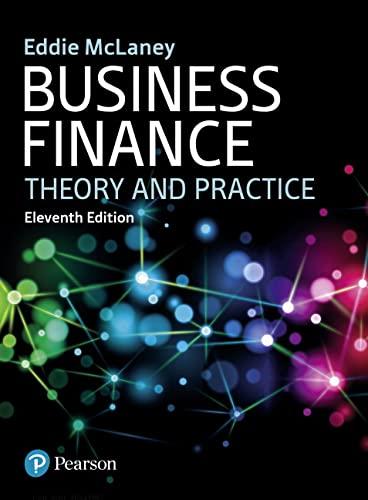Penney Products plc has a manufacturing plant devoted exclusively to production of one of the businesss products,
Question:
Penney Products plc has a manufacturing plant devoted exclusively to production of one of the business’s products, a toy known as Zapper. The product is produced only at this factory. Recently demand has declined owing, managers believe, to the product’s rather old-fashioned image.
The lease on the factory is due to expire on 31 December 20X8 and the company’s management has identified two possible courses of action:
● Cease production of the Zapper and close the factory on 31 December 20X6.
● Keep up production of the Zapper until 31 December 20X8 and close the factory on that date.
You have been asked to make an assessment of the relative merits of the two possible closure dates. Your investigations have revealed the following:
1 Annual sales revenue of Zappers is estimated at £5 million for 20X7 and £4 million for 20X8. Both of these amounts are stated at 1 January 20X7 prices, but are expected to increase at the general rate of inflation. Variable manufacturing and distribution costs average 40 per cent of sales revenue value. Zapper production will be charged an allocation of head office costs at an estimated £1 million for each of the two years.
2 The annual rent of the factory premises is £0.9 million, payable annually in advance.
If the factory were to be closed in 20X6, it appears that the landowner would be prepared to accept just one payment of £0.9 million on 31 December 20X6 to terminate the lease.
3 Plant at the factory had a tax written down value of £1.2 million at 1 January 20X6.
For tax purposes, the plant will attract capital allowances on a reducing balance basis at 25 per cent p.a., starting in the year of acquisition irrespective of the exact date of acquisition during the year. In the year of disposal, no annual writing down allowance will arise, but the difference between the written down value and the disposal proceeds is either given as an additional tax allowance or charged to tax according to whether the written down value exceeds the disposal proceeds or vice versa.
The plant is old and specialised and would not be transferred to the business’s other factories. It is expected that it could be sold for £0.6 million on 31 December 20X6, but by 20X8 it would have no market value.
4 If sales of Zappers were to cease in 20X6, it is estimated that sales revenues from other products of the business would benefit to the extent of 50 per cent of the lost sales revenues from Zappers. These other products have variable costs that average 30 per cent of sales revenue.
5 Working capital equal to 10 per cent of each year’s sales revenues is required for all of the business’s products. This needs to be in place by the start of each year.
6 Redundancy and other closure payments will be £0.8 million if production ceases in 20X6 and £1.0 million if it ceases in 20X8. In either case, the payment will be made on 31 December of the year concerned.
7 The rate of corporation tax is 30 per cent. It is expected to remain at this rate for the foreseeable future. The cash flow effects of tax are expected to occur at the end of the year of the event giving rise to them.
8 The directors have a target return of 8 per cent p.a. in ‘real’ terms for all activities.
9 The business’s accounting year end is 31 December.
General inflation is expected to run at the rate of 3 per cent for 20X7 and 4 per cent for 20X8 and subsequent years.
Assume that all sales occur on the last day of the year concerned.
Prepare a schedule that derives the annual net incremental cash flows of ceasing Zapper production and closing of the factory in 20X6, relative to continuing production until 20X8, and use this to assess the decision on the basis of net present value.
Work to the nearest £10,000.
Step by Step Answer:






